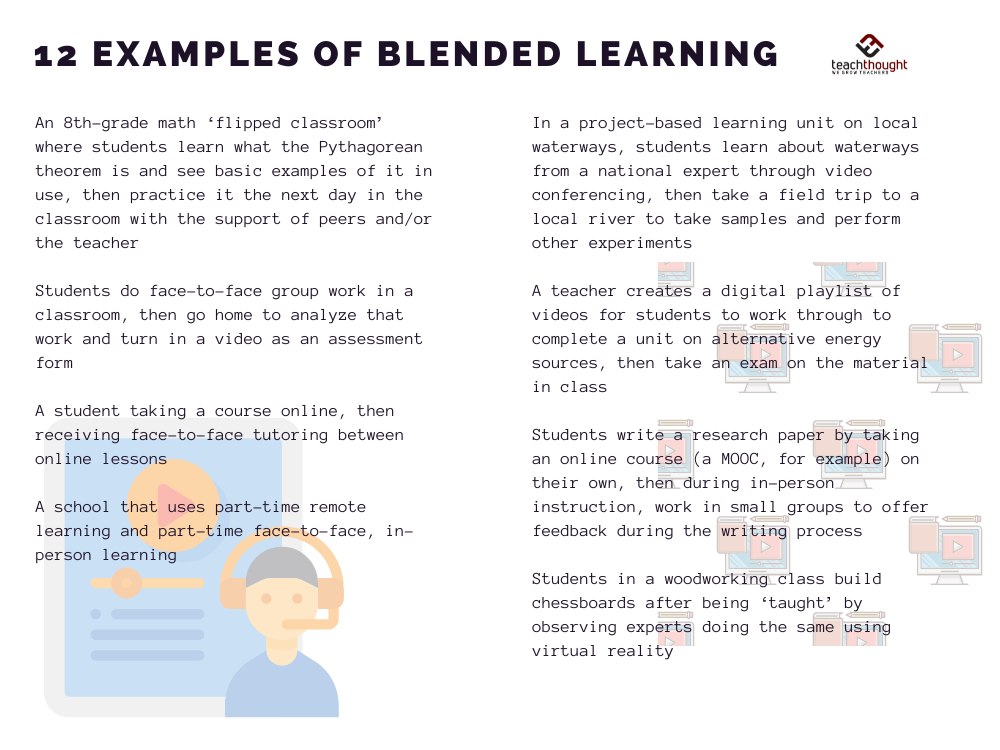
12 Examples Of Blended Learning
by TeachThought Staff
Blended learning is a type of online education where students are taught in both traditional (face-to-face) and online or ‘virtual’ formats.
This approach can be used in a variety of settings, from universities to businesses. While not ideal for every circumstance, blended learning has several advantages over traditional education: it can be more flexible, more affordable, more personalized, and more efficient.
Examples Of Blended Learning In Education
What are some examples of blended learning?
In the Definition Of Blended Learning, we offered that “blended learning is an approach to learning that combines face-to-face and online learning experiences. Ideally, each (both online and off) will complement the other by using its particular strength.”
In Types Of Blended Learning, we also included actual blended learning models like Station Rotation Blended Learning, Remote Blended Learning, and Project-Based Blended Learning. As for actual working examples of blended learning you might see in a school or classroom? Let’s take a look.
An 8th-grade math ‘flipped classroom’ where students learn what the Pythagorean theorem is and see basic examples of it in use, then practice it the next day in the classroom with the support of peers and/or the teacher
Students do face-to-face group work in a classroom, then go home to analyze that work and turn in a video as an assessment form
A student taking a course online, then receiving face-to-face tutoring between online lessons
A school that uses part-time remote learning and part-time face-to-face, in-person learning would also be an example of blended learning.
See also 8 Things Every Student Needs On The First Day Of School?
In a project-based learning unit on local waterways, students learn about waterways from a national expert through video conferencing, then take a field trip to a local river to take samples and perform other experiments
A teacher creates a digital playlist of videos for students to work through to complete a unit on alternative energy sources, then take an exam on the material in class
Students write a research paper by taking an online course (a MOOC, for example) on their own, then during in-person instruction, work in small groups to offer feedback during the writing process would be participating in blended learning.
Students in a woodworking class build chessboards after being ‘taught’ by observing experts doing the same using virtual reality
